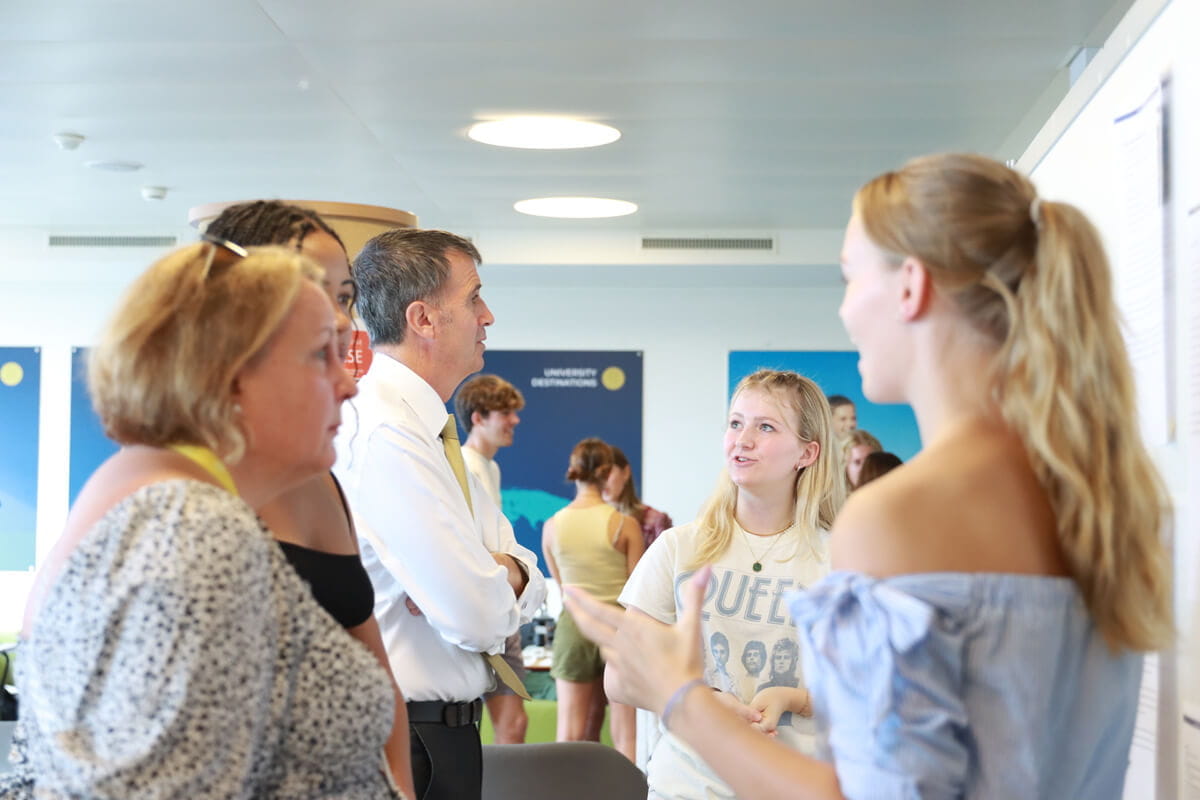Parents and students from Year 10 - D1 were invited to attend our DP2 ToK (Theory of Knowledge) exhibition recently, a core part of the IB Diploma Programme.
Join Our Open Evening!
24 February 2026 | 17:00 - 19:00 | LCIS

Parents and students from Year 10 - D1 were invited to attend our DP2 ToK (Theory of Knowledge) exhibition recently, a core part of the IB Diploma Programme.
The IB Learner profile aims to develop reflective students who give thoughtful consideration to their learning and experiences and can assess and understand their strengths and limitations to support their learning and personal development.
With this in mind, we asked our students to reflect on their learning through the ToK exhibition.
Holly, a DP2 student at LCIS, comments: "The TOK exhibition allowed me to challenge myself on how I can find a new and insightful view on the three objects I chose regarding my question: What makes a good explanation? There was a learning curve within the process, but I believe that my commentaries are interesting and may provide others with a new perspective on these objects. The best example of this was the Billy Ikea shelf which everyone seemed to have experience with."
Emilie comments: "The TOK exhibition taught me how to interact and present my justifications of the objects I chose with a variety of people who each had their unique perspectives too. Hearing the insights of others incentivised me to reflect on the deeper implications of my prompt: What is the relationship between knowledge and culture?"
Guillemette explains: "The TOK exhibition is about connecting personal objects to a certain aspect of knowledge. At first, the writing part felt quite abstract because we had to expand on the larger implications of the objects we chose for our question. However, I enjoyed the exhibition when parents and students from Years 10-DP1 came. It was great to engage with people about something we had worked on for quite some time, especially since it was about objects that personally relate to us. I was able to really convey the importance of these objects to me and how tools such as the microscope and an object I use in my rowing training - the speed coach device - produce and help us acquire knowledge. In addition, the audience helped me elaborate on areas I hadn't quite thought of, which made it that much more interesting."
Albane says: "I found the ToK exhibition a useful and engaging experience because it helped me look at my work in a new way. Talking to people and answering their questions opened pathways to new ideas and questions concerning my topic, many of which I hadn't thought about before. The experience was interesting as it showed differing perspectives and opinions."
What counts as knowledge?
Are some types of knowledge more useful than others?
What features of knowledge have an impact on its reliability?
On what grounds might we doubt a claim?
What counts as good evidence for a claim?
How does the way that we organise or classify knowledge affect what we know?
What are the implications of having or not having knowledge?
To what extent is certainty attainable?
Are some types of knowledge less open to interpretation than others?
What challenges are raised by the dissemination and/or communication of knowledge?
Can new knowledge change established values or beliefs?
Is bias inevitable in the production of knowledge?
How can we know that current knowledge is an improvement upon past knowledge?
Does some knowledge belong only to particular communities of knowers?
What constraints are there on the pursuit of knowledge?
Should some knowledge not be sought on ethical grounds?
Why do we seek knowledge?
Are some things unknowable?
What counts as a good justification for a claim?
What is the relationship between personal experience and knowledge?
What is the relationship between knowledge and culture?
What role do experts play in influencing our consumption or acquisition of knowledge?
How important are material tools in the production or acquisition of knowledge?
How might the context in which knowledge is presented influence whether it is accepted or rejected?
How can we distinguish between knowledge, belief and opinion?
Does our knowledge depend on our interactions with other knowers?
Does all knowledge impose ethical obligations on those who know it?
To what extent is objectivity possible in the production or acquisition of knowledge?
Who owns knowledge?
What role does imagination play in producing knowledge about the world?
How can we judge when evidence is adequate?
What makes a good explanation?
How is current knowledge shaped by its historical development?
In what ways do our values affect our acquisition of knowledge?
In what ways do values affect the production of knowledge?